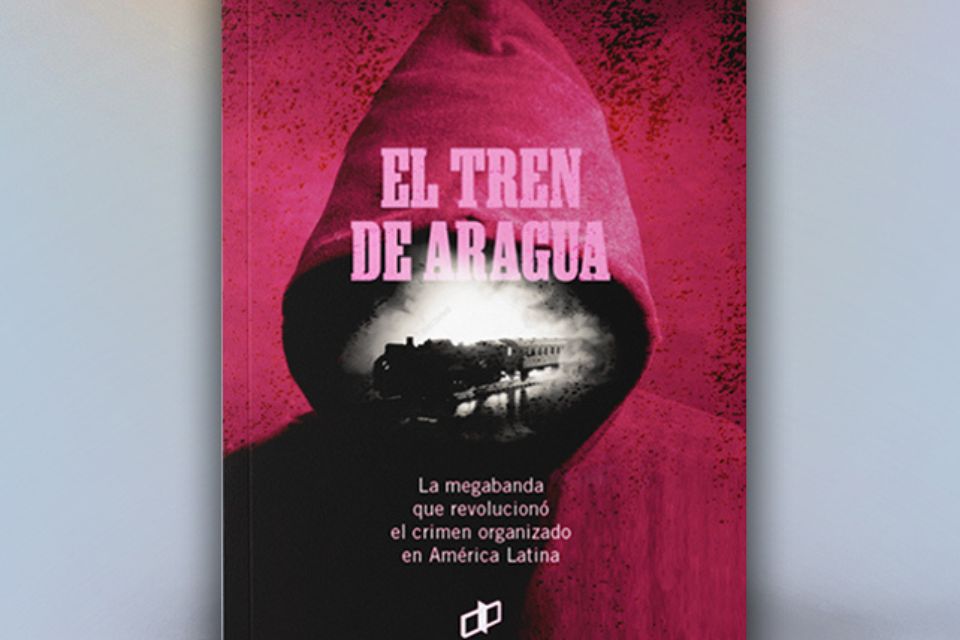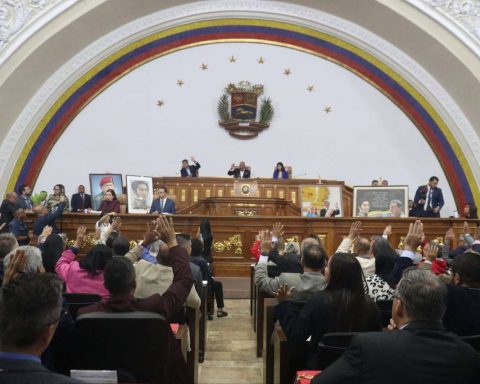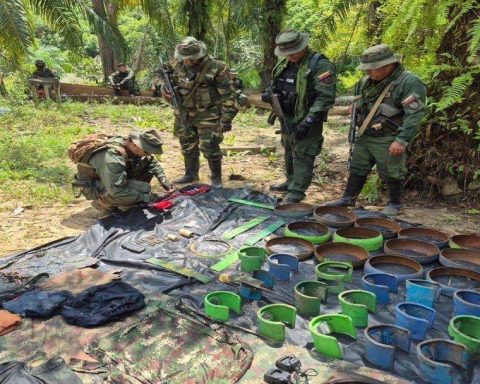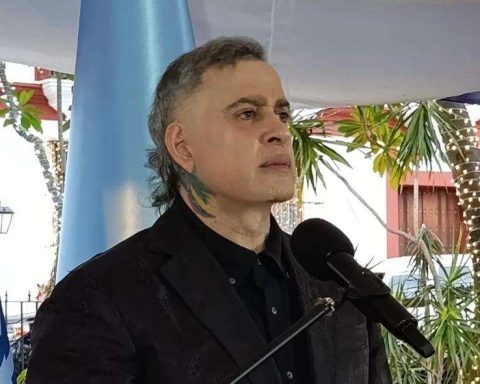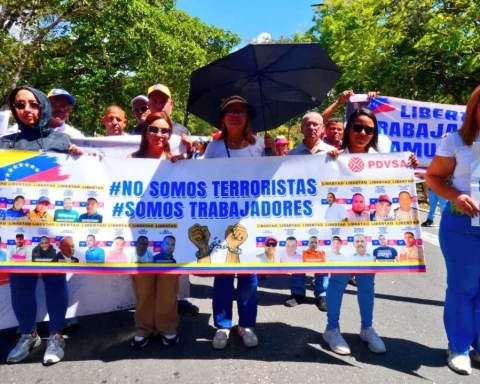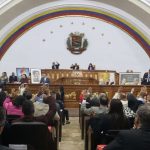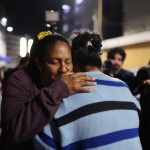After years of research and numerous interviews, the Venezuelan journalist Ronna Rísquez published a book in which she narrates and explains how the Tren de Aragua, the criminal organization born in the Tocorón prison, became one of the most feared criminal structures in Latin America
It started as a gang that operated out of a jail. By merging with others, it took possession of a town, an industrial area, and a lake. It is now a criminal organization involved in more than 20 illicit activities, from drugs and gold to human trafficking, operating from Costa Rica to Argentina and Brazil.
The Tren de Aragua has become synonymous with brutality on South American news, but it is also a case study in criminal governance: the economic and political structure that turned Venezuelan gangs into transnational criminal armies and violent surrogates for the state in communities that legitimate institutions had abandoned, much like the guerrillas had done for decades in Colombian towns.
in book The Aragua Train. The gang that revolutionized organized crime in Latin America, published by Editorial Dahbar, the Venezuelan journalist and coordinator of the Alianza Rebelde Investiga (ARI) Ronna Risquez interviews victims, perpetrators, and investigators inside and outside of Venezuela to paint a portrait of a new kind of criminal empire.
Women who found limitless power in mafia bosses in a prison full of luxuries where even the income itself has to be paid. High school teachers who recount life in a town where even the number of places in a school or the uniform of the students depend on the will of a thug. Policemen who tell openly how the State can hardly do anything in entire territories where the new leaders of armored trucks without license plates decide on life, death, heaven and the subsoil. Investigators in the South of America who discovered that a modest entrepreneur in charge of a food truck near a presidential palace was one of the three bosses of the gang that terrorized his country.
* Also read: Peru arrested 23 people accused of being part of the Aragua Train
The investigative journalist through her work with international organizations, media and think tank in South America has been one of the first to document the rise of new criminal actors among Venezuela’s so-called mega-gangs, which have gone from extortion, kidnapping and drug sales to building international criminal networks with a mix of strategic thinking and extreme violence.
Here is a snippet from the book The Aragua Train. The gang that revolutionized organized crime in Latin America:
Yandris left Tocorón at the end of 2020, after serving a 15-year prison sentence for a homicide that, according to him, he did not commit. But before leaving prison he received a job offer.
—Where do you want to go: Colombia, Chile, Peru, Ecuador…? Wherever you prefer —the principals of the Tren de Aragua told him, with the naturalness of a businessman when he hires his employees. They explained to her that they had “plazas”, as they call the territories where they control micro-drug trafficking, extortion and prostitution in those countries, and they offered her to work as part of the organization in one of those plazas.
Similar proposals are received by almost all those deprived of liberty when they leave the Casa Grande, whether or not they belong to the mega-band. Commissioner Marcos Pérez had already told us about this modality, but it seemed hardly credible to us, like much of what is attributed to the Tren de Aragua. “They look for the people who have been imprisoned in Tocorón, they offer them money to open businesses here (in Venezuela), stores and food sales, then they ask them to help them receive the extortion money and then they tell them that they need go to one of the countries where they have their businesses”.
This is the case with people who are not part of the organization, and the officer knows several similar stories. But with Yandris it was different. He did belong to the gang when he was in prison. That is why the offer was immediate and direct, they favor the possibility of having someone who knows the codes of the organization, because they know that this is a guarantee of trust and loyalty. Those who have lived in the Casa Grande know what happens if they “eat the light”.
The logic of the bosses of the mega gang is simple. People who come out of a prison —at least in Venezuela— have no resources, many have been forgotten by their families, and lack job opportunities. Who offers a job to an ex-convict? Well, it is there, in that other pothole of the State and society, where the parents of the Tren de Aragua found a quarry to recruit the labor they need for their operations in Venezuela and abroad.
The functions that these ex-convicts carry out in the squares are diverse and vary according to the degree of connection and trust, and the abilities of each person. Those closest to the pran, generally high school stars, are given a place to manage; They are the bosses of the plaza. Then there are collectors, administrators, hitmen (those who kill, kidnap, collect extortion and do violent tasks) and hitmen, among other “charges.”
Everyone is paid according to the role they perform. As befits an expatriate, the plaza bosses are also paid for the trip and given resources to set up the operation and open the front businesses. In the structure there are also women, with varied functions. In some cases they manage the relationship and the charges to the girls who are victims of trafficking. “In all businesses, more people are needed and many times they are not ex-convicts, but people who are hired and by working for the group they are already part of the gang,” explained Yandris, who insisted that not all Tocorón prisoners are part of the Aragua Train.
However, the prison is the main source of personnel for the mega-gang. The Casa Grande has come to have more than 7,000 prisoners, although the flow of incoming and outgoing prisoners in recent years is not as massive as before, the mobility of prisoners is constant. In Venezuela the number of prisoners of liberty ranges between 30,000 and 40,000 people. In this way, the organization operates abroad with cells that report directly to the Niño Guerrero in Tocorón. They are led by high-ranking stars, who have under their command ex-convicts and people who are hired to work in businesses, which are generally fronts to cover up illegal activities and launder money. As in the case of the 100 motorcycles purchased by members of the Aragua Train in the town of Tarapacá, in Chile, to be leased to unemployed Venezuelan immigrants, who entered irregularly and use them to work as delivery. The organization promises them income of up to US$600, but takes a percentage for renting the vehicles. That says an October 2022 report from the Chilean Prosecutor’s Office.
The legal income to Chile of Larry Changa and aliases Star, with a passport in the name of a person who does not exist, Carlos González Vaca, show another edge of the expansion process. How did these two people obtain Venezuelan passports before mid-2021, while millions of compatriots waited years to get that identity document?
The other questions are: what do the criminal records of these ex-convicts say? and how did they get them? This leads to the assumption of the existence of a corruption structure that would provide them with passports and clean up their records. Although there is nothing to prove that express government policies to decongest prisons (Plan Cayapa and Regime de Confianza Tutelado) have anything to do with the internationalization of the criminal group, in June 2021, the NGO Una Ventana a la Libertad published that 1,410 inmates they were released from the beginning of the pandemic until June 2021.
According to Yandris, it is false that the prisoners are sent to other countries, to the coastal towns of Sucre or to the Bolívar mines. “They are not prisoners; prisoners can’t get out. They are people who have already obtained their freedom and are going to work there, ”he assured. We do not know if Yandris accepted the proposal; the last time we spoke to him he said he was in Colombia.
There is no exact date of when the international expansion of the Tren de Aragua began, but the testimonies, press reports and data collected in this investigation suggest that 2017 was key. It was the year of greatest political, social and economic conflict in the country, and when the third great wave of migration began, according to the National Survey of Living Conditions (Encovi) 2019-2020. And it is clear that, in its internationalization, the mega-band followed the route of Venezuelan migrants.
To understand what for many is a surprising and rapid international expansion of this criminal organization, it is necessary to take into account three fundamental factors that we have mentioned: the economic deterioration of the country since 2013, the massive migration of Venezuelans, and the mistaken prison and security policies. . In reality, and if we simplify it to the extreme, the international expansion of the Tren de Aragua occurred, strictly, for economic reasons; tactical rather than strategic, as its members were losing their jobs.
The economic depression in Venezuela decreased the distribution of income by the State. That is, everyone began to earn significantly less. This led to the bankruptcy of many companies and businesses, the withdrawal of transnational companies that no longer found sufficient compensation for their losses, and the general impoverishment of large sections of the population.
And thus migration became more acute, since Chávez came to power it had been gradual, but growing. In the case of criminal groups, internal migration began first, towards the rural centers where the most profitable illicit economies operated: Bolívar, with gold, and Sucre, with drug trafficking; then came the jump abroad.
Post Views: 175
